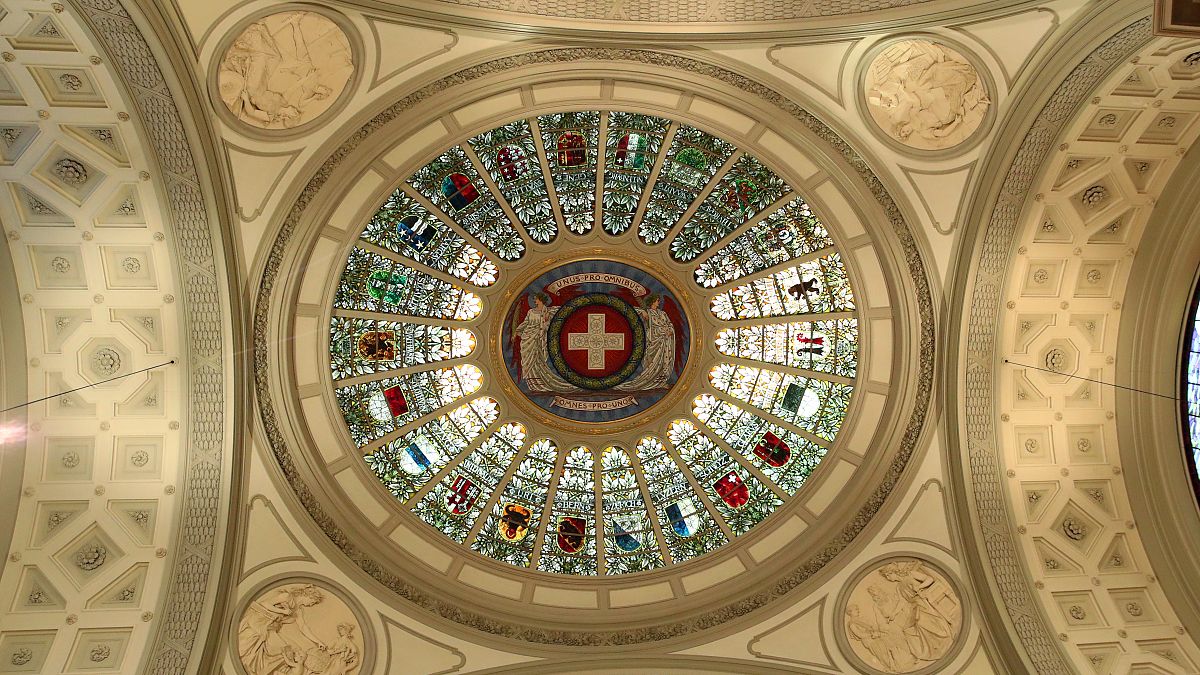Growing concern over the environment and Switzerland's relationship with the European Union are at the centre of campaigns to reshape the country's parliament
Switzerland’s relationship with the European Union and measures to fight against climate change are the main focuses of campaigns for the country’s Sunday parliamentary election.
The country has been ruled by a coalition of the same four parties for 60 years, but concerns over climate change could lead to gains for Switzerland’s Greens, a poll showed ahead of the October 20 elections. This would represent a major change for the country's usually stable political landscape.
A September poll by Switzerland’s largest private media company Tamedia showed the right-wing Swiss People's Party (SVP), which won record seats in 2015 amid Europe's refugee crisis, dip 1.5 points while the Green Party's share has risen more than 3 points to 10.2% of the vote.
A smaller green party, the Green Liberal Party (GLP) is also expected to gain seats: this would bring the green parties to a combined 17.4% of the vote, placing them collectively third behind the SVP and the centre-left Liberals (FDP).
"There is a deep and durable change in people's concerns and a new general awareness of the climate emergency," said Pascal Sciarini, a political scientist at the University of Geneva.
Growing concerns over climate change
Switzerland's younger population has expressed big concern over climate change with frequent climate marches in the past few months, but it remains unclear whether their action on the street will translate into votes.
The Swiss Election Study data showed that fewer than a third of 18-24-year-olds took part in 2015, with a national turnout at 49%.
Even if the Greens are not able to grab a seat, they could help push through legislation such as carbon law previously rejected by parliament.
But analysts warn against hoping for too much change as many voters in regional SVP strongholds are very loyal and they show little sign of changing their minds.
The European Union puzzle
The other big topic that has been dominating the news in the past weeks in the Swiss federation is its complicated relationship with the European Union.
Switzerland has been working on a new deal redefining its relationship with the European Union for four years now, and it hoped to conclude the negotiations in October. But doubts over trade and labour rights meant that this hope faded as the country failed to find domestic consensus.
The main fears are that the new deal would dilute national laws protecting Swiss wages - currently the highest in Europe - from cross-border competition with EU workers for neighbouring countries.
Critics say that the treaty limits Swiss sovereignty to the point that it would never get through parliament or pass a referendum under Switzerland’s direct democracy.
Immigration from both EU and non-EU countries has been at the centre of the national debate in Switzerland at least since 2015, mostly feeding the right-wing populists of the Swiss People's Party who have consistently been running on an often virulent anti-immigration platform.
The SVP reached a record 29% of the vote in 2015 - but the "green wave" now seems to have taken over as the most pressing concern for the Swiss electorate.
Not only have only 19% of voters polled by state broadcaster RTS stated that concerns around immigration will determine how they vote, but the SVP's tendencies towards climate denial are also expected to take a toll on their electoral results.
What's at stake?
The Swiss people are called to elect the 200 members of the National Council, the "lower" chamber, and 45 of the 46 members in the Council of States, the federal chamber.
No party alone has ever held an absolute majority of seats in both chambers at once in the past 100 years, and no one is expected to this time either.
Although parliamentary elections are considered important in the country, its peculiar direct democracy system means that all major policy decisions are subject to a binding popular vote anyways: Switzerland holds an average of four referendums every year.
This means that even the largest political majority can potentially be overruled by the popular vote on precise issues.
Polls close at 12 pm CEST, with initial projections, including from the many postal votes, due soon thereafter.
